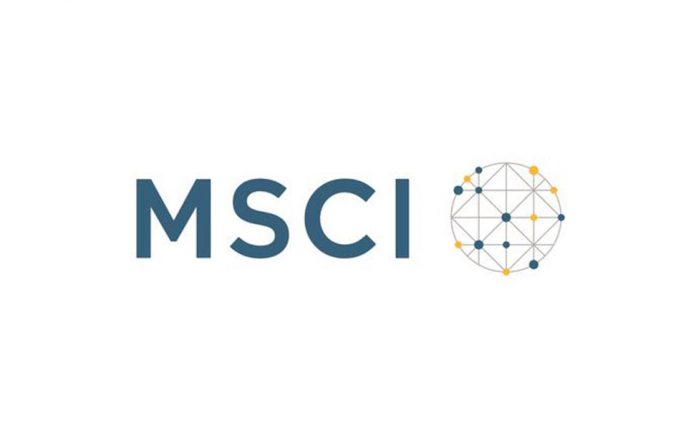May 9, 2019 (MLN): With passage of time, another Morgan Stanley Capital International (MSCI) Review dawns upon us and the consequential buzz regarding Pakistan’s latent downgrade from the Emerging Market (EM) Index to the Frontier Market (FM) Index, is growing louder by the day.
Concerned investors and market participants are anxious about the impact this downgrade will have on the already downtrodden stock market and successively, the economy.
Currently placed within the EM Index, 22 of Pakistan’s companies are listed in MSCI’s small cap Index, 2 in mid cap (MCB and HBL) and only 1 company (OGDC) is in the large cap index.
Mr. Nabeel Khursheed, Senior Analyst at Topline Securities firmly believes that an immediate downgrade is not on cards. In a telephonic conversation with Mettis Link News, he said that any downgrade is highly unlikely for at least another 2 years.
In justification of his stance, he explained that when a country fails to meet the criteria to stay in a market index, the MSCI conducts Public Consultation where it invites investors and market participants to provide feedback of that market. This procedure takes around 6 – 12 months and in case a downgrade is decided upon, it takes another 6 – 12 months to implement it.
Going by this theory, Pakistan will remain in the EM Index for another 2 years, approximately.
For emerging markets index inclusion, a stock market must have at least three stocks which meet minimum size and liquidity thresholds. For frontier market status, two stocks must meet a more lenient version of these thresholds.
MSCI has recently revised its minimum market capitalization limits for Emerging and Frontier Markets and Habib Bank Limited (HBL)’s market capitalization remains below the minimum market size criteria for EM.
Unfortunately for Pakistan, only three of its stocks including HBL, met this criteria and now that HBL will potentially be dropped out of EM, only two stocks would continue fulfil the requirement.
This has stimulated a sense of anxiety amongst investors as they foresee MSCI Pakistan Index’s potential downgrade to the FM Index.
However, before pronouncing this as a bad news it is pertinent to review and analyze the previous MSCI reviews and their impacts, in order to evaluate just how bad a dish the “worst case scenario” will serve for Pakistan.
Fully consumed in the misery of prevailing instability, with their heads wrapped around the immediate problems at hand, the investors are unable to see through the murk gathered around these problems and align some important points with regards to this review.
To dissipate the haze surrounding this picture, we have carried out a step by step review of each MSCI review since Pakistan was first placed in the EM index.
MSCI Review, May 2017:
At this review, Pakistan was added to the EM index from its previous position in the FM Index. 27 of Pakistan’s securities were added to the MSCI Global Small Cap Index while 6 securities were added to the MSCI Global Standard Index.
The securities added to the Global Standard Index included ENGRO, HBL, LUCK, MCB, OGDC and UBL.
At the time, Pakistani Rupee (PKR) was valued at 104.84 per US Dollar while net sale of securities by foreign investors for the six months prior to the review, was worth around $461.4 million (Rs.48.4 billion).
This means that a net amount of $461.4 million had flown out of Pakistan in the six months before Pakistan was promoted to the EM index.
Following this event, the market was anticipating the positive impact this would have on Pakistan’s economy.
MSCI Review November 2017:
During the first six months of Pakistan’s stay in EM index, the net outflow of foreign investment in local securities reduced by nearly $245.7 million (Rs.26 billion).
Encouragingly enough, the gross purchase of securities (Rs.254 billion) increased by around 23 billion while gross sale of securities (Rs.276 billion) came down by over Rs.2 billion, bringing the net outflow to nearly Rs.23 billion, which translates into $215.7 million after accounting for an exchange rate of Rs.105.44 per US Dollar.
However, at this review, ENGRO was moved from the MSCI Global Standard Index to the Small Cap Index while PSMC and SHELL were deleted from the Small Cap Index.
ENGRO’s share price during the period declined by Rs.66.9 marking a change of 22%.
MSCI Review May 2018
This time around, no changes were made to the MSCI Global Standard Index but 3 securities were deleted from the Small Cap Index.
Acquainting with the positively directed trend begun before, the net outflow reduced by almost $169 million (Rs.17 billion) in the 6 months preceding this review. The gross sale of securities diminished by Rs.127.5 billion which brought the overall net sale to Rs.5.6 billion or $46.97 million only.
MSCI Review November 2018:
This is the latest review as of now, in which LUCK and UBL were moved from the Global Standard Index to the Small Cap Index while MLCF and Atlas Battery were removed from the Small Cap Index.
In the months preceding this occasion, a very noticeable rise in net sales was observed which shot up to $427 million (or Rs.51.2 billion) as the gross purchase dropped by over Rs.42 billion and gross sales jumped to close the remaining gap.
This partly entailed decrease in LUCK’s share price by Rs.141.7 (23.2%) while UBL’s share price decreased by Rs.31.8 (or 19.2%).
Ever since MSCI’s last review, the cumulative outflows up till now have plunged back to $68.5 million (Rs.8.6 billion).
Pakistan’s woes to save the day?
An assessment of these sequential MSCI meetings with successive deletion of some securities along with repositioning of others to smaller cap index, has opened doors for us to ponder over the country’s current weightage in the EM MSCI index.
As it turns out, Pakistan’s weight in EM Index has severely declined from 0.14% in the past, to 0.034% of the index at present. OGDC’s current weightage in the EM Index is 0.012%, MCB’s is 0.01% while HBL’s weightage is 0.012%.
This piece of information dusts aside much of the distress associated with a potential downgrade, by uncovering some very interesting points.
First of all, Pakistan’s current weightage in the Index seems to be too small to cause any solid damages anyway. While having a small weightage is not something to boast about, it does entail that a rise in outflows following from a downgrade shall not be big enough to stimulate a tensed environment.
Analysts believe that if a downgrade takes place, the outflowing amount will be around $100 million to $120 million, only.
Moreover, owing to substantial devaluation of PKR in the recent past, along with the consistent decline in stock prices, the value of outflowing funds in dollars would not be as significant as one might expect given that the current position is PKR 141.2 per USD, which again favors Pakistan’s case here.
On the other hand, a downgrade would simply put Pakistan in the Frontier Market index, and this will bring along fresh investments and inflows of its own, in future.
As we put together all the puzzle pieces, it seems that while a downgrade from MSCI EM to MSCI FM is not preferred, the occurrence of such an event would not pose as a big threat to the country. Other than that, whatever little risk it does contain is not sufficient to lose sleep over.
Copyright Mettis Link News
27894




